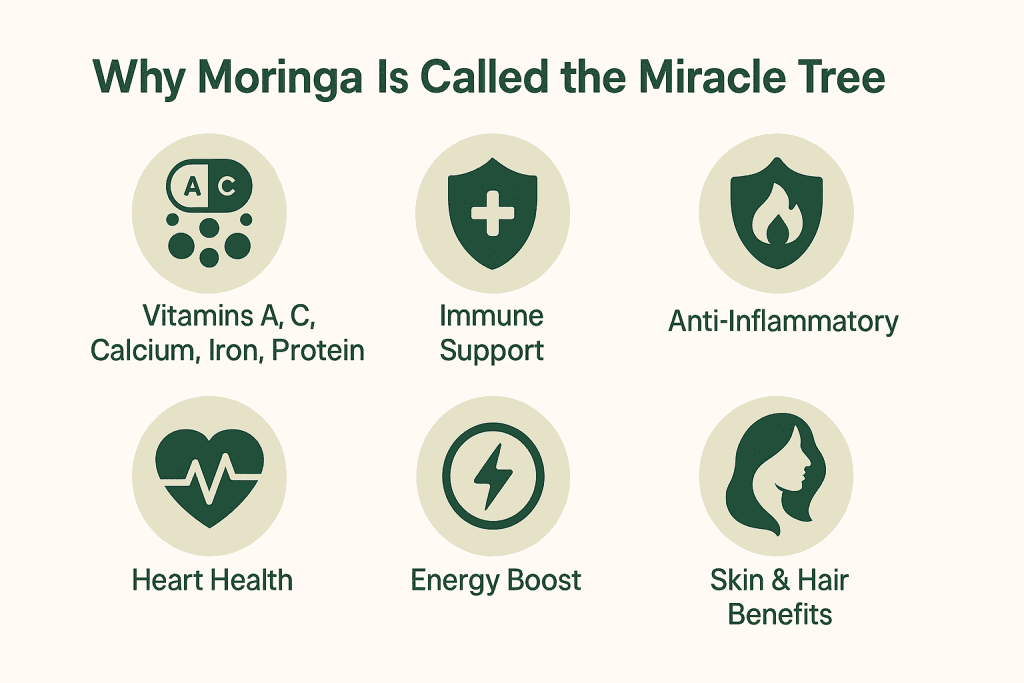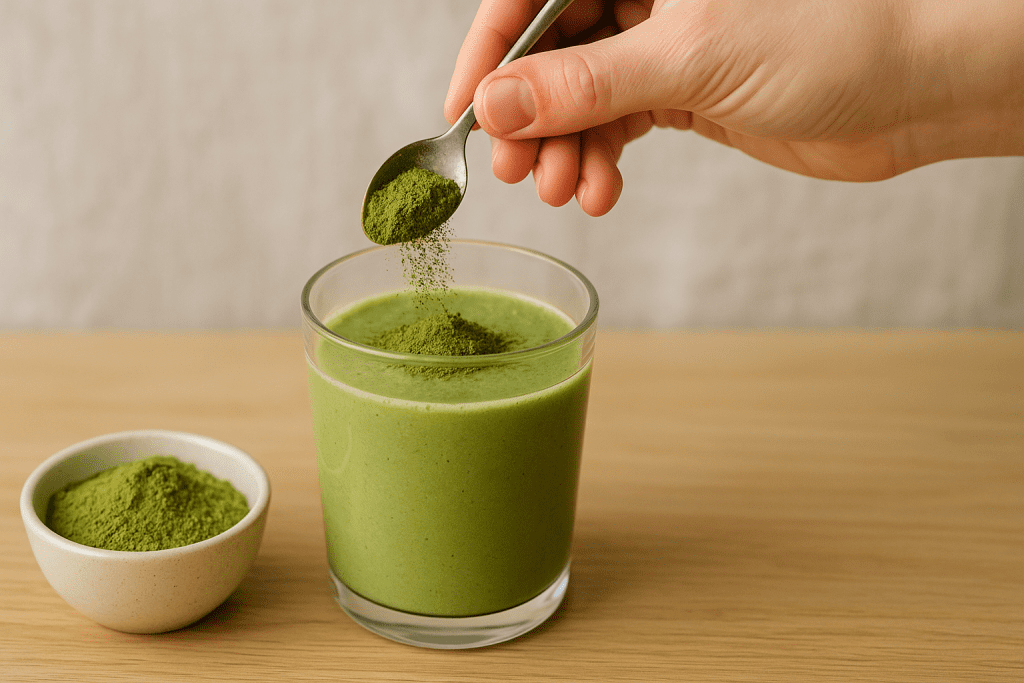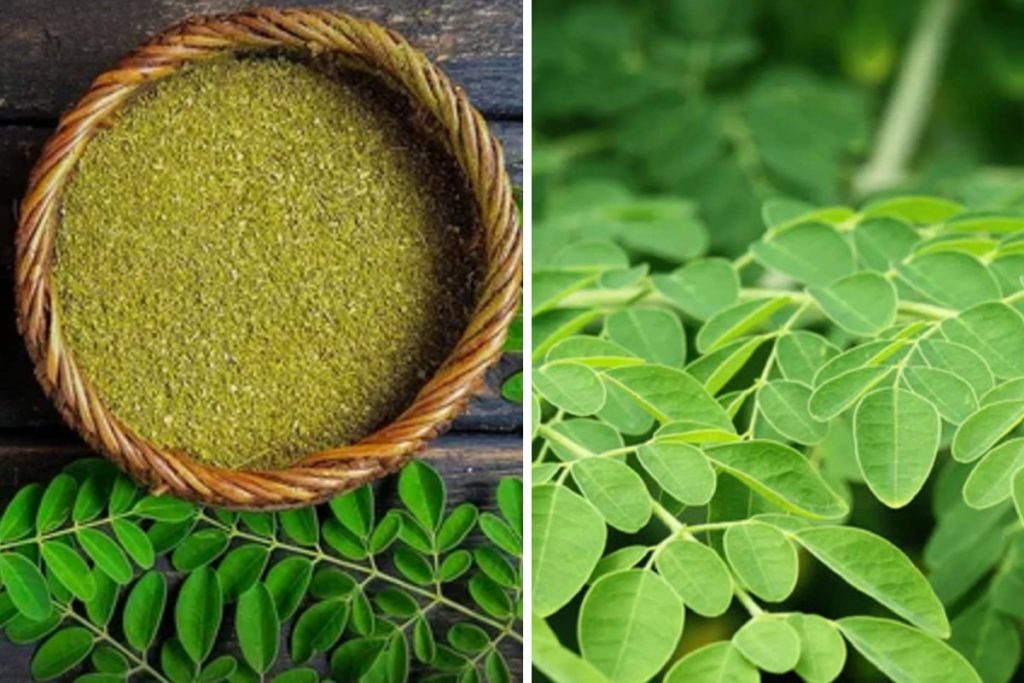The Miracle Tree You’ve Been Ignoring: How Moringa Can Transform Your Health from Head to Toe
In small villages across Asia and Africa, there’s a tree that people have relied on for generations. It grows fast, survives tough climates, and almost every part of it can be used — the leaves, the seeds, the flowers, even the roots. Ask a grandmother in a remote part of India, and she’ll tell you how she made soup from the pods to fight tiredness. Ask a farmer in Nigeria, and he’ll mention using the seeds to purify dirty water. That tree is Moringa, and now, it’s taking the world by storm.
But why now? Why is everyone from fitness influencers to wellness doctors suddenly talking about moringa like it’s some secret weapon?
Let’s take a deeper, honest look — not the polished marketing stuff — but what real people are saying, what science knows so far, and how this “miracle tree” might actually deserve all the hype it’s getting.
So What’s the Big Deal About Moringa?

You’ve probably seen it in powder form, green as matcha and smelling kind of earthy. Health stores call it a “superfood,” but that word gets thrown around too easily. Moringa is different because it’s not just about one benefit — it’s a full package.
The leaves are loaded with vitamin A, C, calcium, potassium, iron, and even a surprising amount of protein. That’s right — protein from a plant leaf. People in rural parts of South Asia have been using it for decades to fight malnutrition, especially in children. Just a handful of dried leaves can add life-saving nutrients to a meal.
But the magic doesn’t stop there. Moringa is also known for its anti-inflammatory and antioxidant properties. In real-life terms, that means it may help your body deal with everyday stress, reduce internal inflammation (the kind that leads to diseases later), and support your immune system when it’s under attack.
For example, some people with joint pain or arthritis say they feel better after adding moringa powder to their diet daily. While research is still ongoing, there’s a lot of early evidence that backs these experiences.
In one study, moringa leaf powder showed the potential to lower blood sugar levels in people with type 2 diabetes. That doesn’t mean it replaces medicine — but adding it to a balanced lifestyle might actually help people manage their health naturally.
And let’s not forget about the heart. Several animal studies have shown that moringa may help lower cholesterol, improve blood pressure, and protect the heart from oxidative damage. Again, it’s not a magic pill — but it could be a powerful natural supporter if used wisely.
From Grandma’s Remedy to Instagram Trend
So how did this humble village tree turn into a buzzword for health freaks?
The truth is, moringa’s rise was quiet but steady. Once nutritionists started analyzing the nutritional breakdown, the numbers spoke for themselves. Health writers jumped in. Influencers followed. Suddenly, moringa smoothies, energy balls, and detox teas were popping up on every feed.
But here’s what makes it worth trying — it’s simple.
You don’t need to be a health guru or buy expensive products. You can start with 1 teaspoon of moringa powder a day. Stir it into yogurt. Add it to dal or curry. Mix it into a smoothie with banana and peanut butter. That’s it.
Some people even drink moringa tea, made by steeping fresh or dried leaves. It’s not a strong taste — more like green tea but milder. Add lemon or honey if you want.
The pods (called drumsticks in South Asia) are also edible. They’re used in curries and soups and are especially popular in Indian households. They’re soft when cooked and carry a mild, comforting flavor.
Moringa oil, made from seeds, is used on skin and hair. It’s rich in oleic acid, just like olive oil. Some people use it as a moisturizer, others for hair growth, and many just love that it’s natural and chemical-free.

Real People, Real Stories
On Reddit’s r/Supplements forum, a user shared how moringa helped improve their energy and digestion. “I stopped drinking coffee and switched to moringa tea in the morning. Took a few days to adjust, but I feel more steady energy now, not the crash I used to get.”
A YouTube creator named Natalie, known for documenting her PCOS recovery, shared a video titled “Why Moringa Changed My Life.” She talks about how it helped her regulate her cycles and boost iron levels without needing heavy pills.
Of course, not everyone feels a difference instantly. It’s a plant, not a miracle drug. Some users say they noticed effects after two weeks. Others say it helped more when paired with a cleaner diet.
What to Keep in Mind Before Jumping In
Even the best things come with a bit of caution.
Moringa is not recommended during pregnancy unless your doctor says it’s safe. Some parts of the plant (especially the root and bark) can cause contractions and should be avoided.
Also, while moringa is generally safe in food amounts, taking high doses of concentrated supplements without medical advice isn’t wise. Natural doesn’t always mean harmless. If you’re on medications, especially for blood sugar or blood pressure, check with your doctor before starting moringa regularly. It might enhance the effects too much.
And then there’s the quality. Not all moringa products are created equal. Look for trusted brands that test for heavy metals and pesticides. Organic certification helps, but always read the label.
A Simple, Affordable Way to Nourish Your Body
In a world where supplements can cost a fortune and health trends change every month, moringa stands out because it’s real, accessible, and affordable. It’s not here to replace your meals, pills, or professional advice. But as a daily support tool — a gentle, natural nudge toward better health — it’s hard to beat.
It’s easy to dismiss things that get too hyped. But sometimes, ancient wisdom knows what it’s doing. Moringa might just be one of those rare cases where grandma’s soup and modern science finally agree.
If you’re looking for a small but powerful change in your diet — something that supports energy, immunity, skin, and even your heart — give moringa a try. No need for fanfare. Just one teaspoon a day, and let your body tell you the rest.



